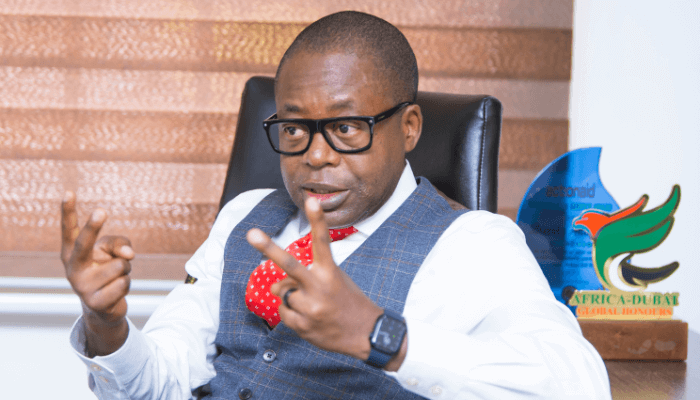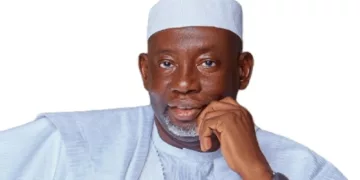In your opinion, how can Nigeria shape the future of the African energy industry?
Nigeria holds a pivotal role in shaping the future of the African energy industry due to its abundant natural resources, economic importance, and growing population.
The Nigeria International Energy Summit (NIES) acts as a catalyst for collaboration and innovation, bringing together industry leaders and policymakers to address challenges and find sustainable solutions.
Can you share your vision for the future of the Nigerian energy sector?
In the future, Nigeria needs to take her destiny in her own hands. Nigeria must prioritise ending energy poverty as a key goal. While renewable energy opportunities should not be ignored, all energy sources must be considered for inclusivity. Economic and energy independence go hand in hand, and diversifying the energy sector is crucial. This includes increased investment in renewables like solar and wind power, reliance on natural gas for cleaner energy, and implementing energy efficiency measures. Rural areas will receive electricity through decentralised systems, and innovation through digital technologies, research, and international partnerships will drive sustainable practices. However, the future of Nigeria’s energy sector will be shaped by various factors such as political, economic, social, and technological considerations, as well as government policies, market demands, and environmental concerns.
Can you reflect on your role in the launch of Nigeria’s Decade of Gas agenda?
I am definitely proud of the Decade of Gas (DoG) project. When we launched it, the then President, Muhammadu Buhari, attended, in spite of COVID. That is a statement on its own. It marked a very significant journey for Nigeria.
The then minister of State for Petroleum Resources, Timipre Sylva, worked with an amazing team who had been designing the framework and driving a massive emphasis to Gas. We gave the idea of the wings to fly as it were.
Let us not forget that it was also that it was Sylva who took the proposal to the President to sell it. Buhari was totally on board after meeting Sylva. They both agreed launching the Decade of Gas could literally make a generational impact. It was after that meeting that I went back to the drawing board with my team to come up with a proper roadmap.
I need to also praise NNPC Ltd led by Mallam Melee Kyari, the NNLG Ltd and their entire leadership at the time. They were and still are very instrumental in driving the whole DoG agenda. There are individuals like Dr. Justice Derefaka, one of the technical advisers to the former minister of state for Petroleum at the time, and Philip Afolami at NLNG together with his team and also Ed Ubong from the Nigerian Gas Association (NGA) who currently chairs the steering committee on Decade of Gas. The current Permanent Secretary, Federal Ministry of Petroleum Resources, Ambassador Gabriel Aduda, has been phenomenal too. This country is blessed to have these people running things and I know history will be kind to them. I am honestly more than delighted that DoG has now taken a life of its own, with a proper structure and resources to succeed.
What benchmarks or indicators should be in place to evaluate the progress made in the energy sector in the coming years?
While I am not a government official, I can provide general guidance on how policymakers and stakeholders could measure the success of their vision for the energy sector and the indicators they might consider.
Key indicators include tracking electrification rate, renewable energy percentage, energy infrastructure improvements, sector investments, energy-efficient technology adoption, reduced greenhouse gas emissions, electricity affordability, employment opportunities, research progress, and consumer feedback.
These indicators, among others, can provide a comprehensive view of the progress made in the energy sector and help in evaluating the success of any vision or plan. It is crucial for policymakers to regularly assess these metrics to make informed decisions and adjust strategies as needed to achieve their goals.
We have heard how past and present governments have routinely bounce ideas off you before making final calls. How do you react to these stories?
I am not in a position to either confirm nor deny stories about how the government decides to conduct their business. However, what I would say is that we run an international consultancy outfit that provides non-political world class advisory services to governments. We have the expertise to translate ideas into actionable policies for governments and that is a valuable service, especially in the complex field of oil and gas.
The Nigeria International Energy Summit, which is the only official oil and gas trade event of the federal government, is one of our flagship projects. The government engaged us to produce this conference on their behalf. Part of our mandate is to crystallise the ideas coming from the event and streamline them into workable policies that the government can take a look at and possibly implement.
This, I believe is the reason why the event has grown in popularity and is now a must attend industry event with top level attendees from no fewer than 65 countries. The fact that the event has gained international recognition and attracts attendees from numerous countries speaks to the significance of the work you do.
The networking opportunities are incredible and I guess this explains why clients keep coming back and in February 2024, we expect to again play host to key stakeholders and run a side exhibition that allows companies market their services directly to decision makers. But don’t forget, we work for and advise several other governments.
Maybe we should take a step back and talk a little bit more about your background and how you got here.
I had my primary education at the University of Jos, Staff School, and then attended Federal Government College Azare. Looking back, I think Azare was the making of me. Boarding school life at a young age accelerated my mental growth. I later earned a Law Degree from Benue State University and attended Law School in Abuja. After being called to the Bar, I worked for the African Business Roundtable and then joined a London-based Trade Advisory firm before eventually founding Brevity Anderson. Throughout my career, I have been involved in government-to-business advisory work and organised High-Level B2B and G2B events.
Can you elaborate on the key objectives of the NIES and how it aims to position Nigeria in the global energy landscape?
The Nigeria International Energy Summit (NIES) is a significant event endorsed by the Nigerian government, aimed at positioning the country in the global energy arena. It serves as a platform for discussions, interactions, and high-level deals involving governments, oil companies, investors, and service providers. The focus is on attracting investments, showcasing Nigeria’s energy potential, and fostering global collaborations and technology transfers. Looking ahead to NIES 2024, it is anticipated to be transformative, promising a prosperous and sustainable future for
Nigeria’s energy sector through innovation, collaboration, and excellence. What is the main theme of NIES 2024?
The theme of NIES 2024 is “Navigating the new world order: Security, Transition, and Finance.” This theme highlights the challenges and opportunities in the global energy sector.
Securing energy infrastructure is vital due to rising geopolitical tensions and cyber threats. Nations need to invest in physical and digital security measures, diversify energy sources, and combat energy poverty. Ending energy poverty requires a concerted effort from the government, private sector, civil society and implementing a combination of strategies that includes all the energy sources from fossil fuels to renewables. Financing energy projects is also a challenge that requires sustainable investments, and collaboration between governments and financial institutions. Thus, addressing security, transition, and finance pillars is vital for a sustainable, more secure, and economically viable energy future.
How can Nigeria involve local communities to actively participate in the energy transition process?
To engage local communities in Nigeria’s energy sector, a comprehensive approach is needed, involving education, infrastructure development, financial support, skill enhancement, collaboration, policy development, and cultural integration. By respecting local customs and traditions, actively involving communities, and making them stakeholders, a smooth transition to sustainable energy practices can be achieved. This approach, if implemented genuinely, not only empowers local communities but also contributes to Nigeria’s energy transition goals, potentially serving as a model for other regions dealing with energy poverty.
How can the energy sector incorporate opportunities for the youth to actively contribute to the sector’s growth and innovation?
Developing the energy sector in a country like Nigeria, with a significant youth population, requires a multifaceted approach that incorporates skill development, employment opportunities, and active participation in the sector’s growth and innovation. Initiatives such as vocational training, specialised energy courses in universities, mentorship, funding, and grants for energy innovation are crucial. Energy companies should offer apprenticeships, and government agencies should allocate funds for research involving youth. Incentives for companies investing in youth development can drive sustainable economic growth and energy security in Nigeria.
We’ve got the edge. Get real-time reports, breaking scoops, and exclusive angles delivered straight to your phone. Don’t settle for stale news. Join LEADERSHIP NEWS on WhatsApp for 24/7 updates →
Join Our WhatsApp Channel










